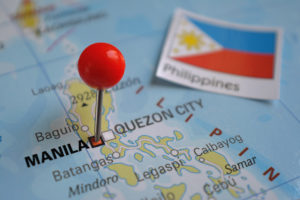Philippines: PNP chief avoids giving opinion on proposed POGO ban

Rodolfo Azurin Jr, chief of the Philippine National Police (PNP), said the police’s focus was on fighting against illegal operations.
The Philippines.- Rodolfo Azurin Jr, chief of the Philippine National Police (PNP), has avoided being drawn into the debate over whether to ban Philippine offshore gaming operators (POGOs).
According to Manila Bulletin, when asked if he was for or against the ban on POGOs in the country, Azurin Jr said: “On the part of the PNP, we will continue to operate against the operations of illegal POGOs. We will continuously coordinate with PAGCOR (Philippine Amusement Gaming Corporation) because there are licensed and unlicensed POGOs.”
President Ferdinand Marcos, Jr. was previously quoted as saying that he wanted a good reason to ban POGOs since the activity represents an important source of income for The Philippines. However, some senators and others believe the negative impact of POGOs outweighs revenues. They say that crimes, especially kidnapping for ransom, have increased in areas where POGOs operate, such as the southern part of Metro Manila and the Clark Air Force Base area.
A few months ago, senator Sherwin Gatchalian suggested that the Philippines could mitigate the impact of a ban on online gaming by growing the business process outsourcing (BPO) industry. Gatchalian noted that POGOs contribute PHP34.68bn a year to the country or 1 per cent of GDP.
He said that while this contribution could be considered significant, the impact of a ban could be mitigated by attracting BPO companies, which could take up office space left by gaming operators.
The PNP has cracked down on illegal gaming operations and moved ahead with the mandatory registration of foreign POGO workers in the country, which includes obtaining police permits. The PNP move came amid confirmed data showing an increase in crimes involving Chinese and other foreign POGO workers in Metro Manila, Central Luzon and Cavite.
See also: 156 illegal offshore gaming workers deported in 2022








